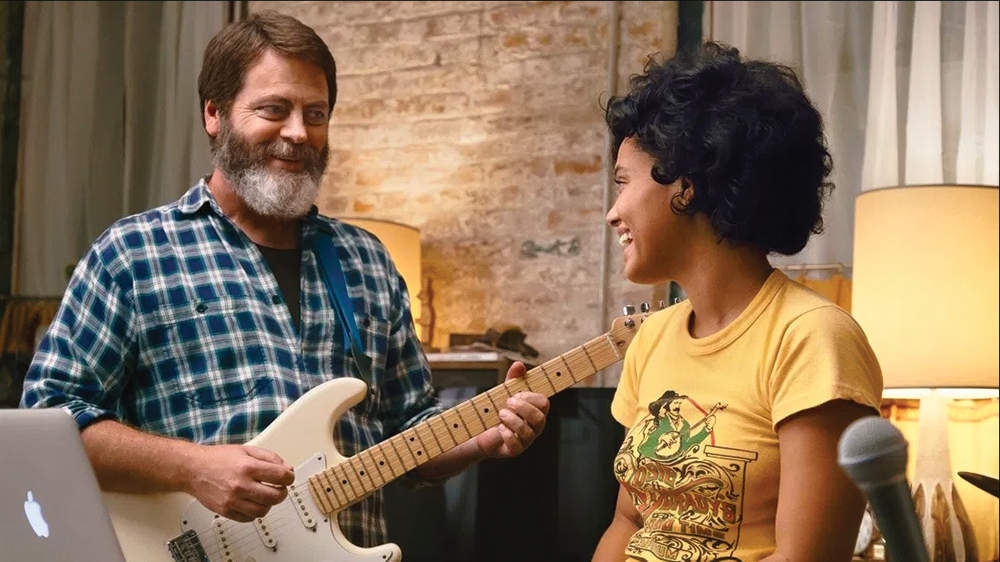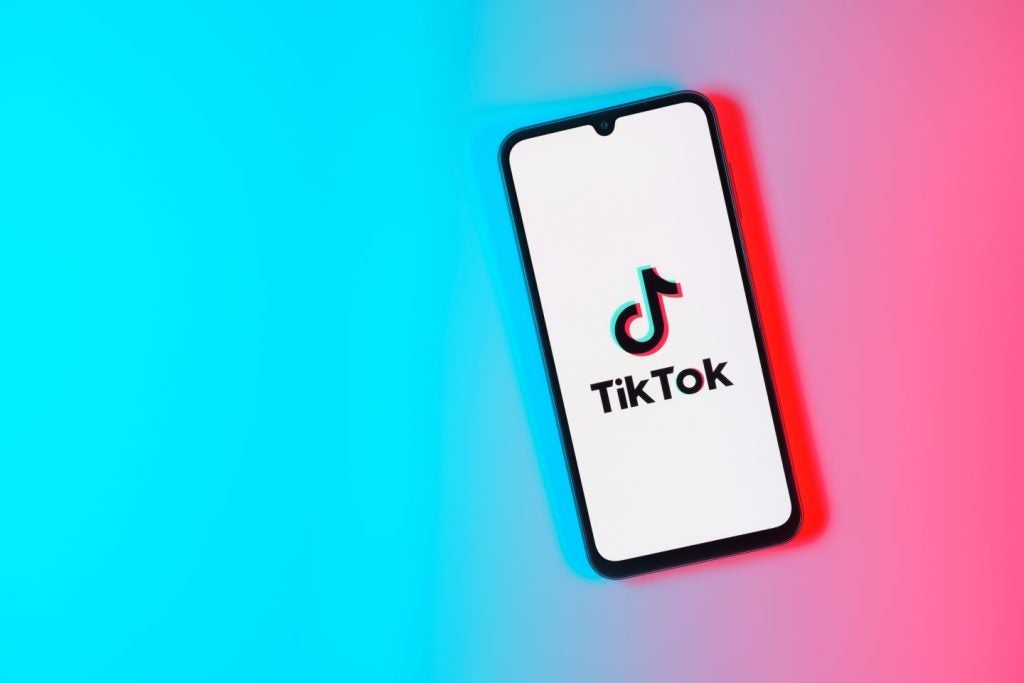
Brett Haley’s latest film Hearts Beat Loud premiered to critical acclaim at this year’s Sundance.
2018 marks Haley’s third Sundance as a director. Despite disparate themes, his films are united by their perspective. They act as snapshots into the realistic lives of his characters rather than bending to fit a beginning-middle-end format.
Hearts Beat Loud is no different. Nick Offerman stars as Frank Fisher, owner of a Brooklyn record store who tries to persuade his daughter (Kiersey Clemons) to skip university to start a band with him after a song they record together goes viral.
As with all of Haley’s films, it opens abruptly and closes abruptly. When Verdict sits down with Haley, he admits he has faced some criticism over the ending:
“It’s funny, because people have described the film as too neat and clean and tidied up in a bow. But I’m like, that’s not the ending of this movie at all, I don’t know what film you saw. To me it’s the most realistic ending. It’s something we call in writing, surprisingly inevitable. You may not have seen it coming but if you actually look back, that’s the only ending to the movie. All those things happening the way they do, it’s the most realistic and honest ending.
“And that’s what I think the ending should be, it feels good but it isn’t manipulative. It isn’t too picture perfect or cute or neat, it’s a little messy but it’s also human and real. So that’s what genuinely what Marc (Basch, the film’s co-writer) and I write from: how can we make this as believable as possible. Endings are such a tough thing but you try your best to hit a moment.
 GlobalData Strategic Intelligence
GlobalData Strategic IntelligenceUS Tariffs are shifting - will you react or anticipate?
Don’t let policy changes catch you off guard. Stay proactive with real-time data and expert analysis.
By GlobalData“I try to end my feelings on a moment rather than ‘and then they lived happily ever after’. I like a moment. All of my films end on a moment. All that life is is a series of moments, so you’ve got to pick the best one to end a movie on and see if that works.”
Our conversation starts with the ending of the film because, in a curious way, the meaning of Hearts Beat Louder doesn’t become clear until the credits roll.
Make no mistake, Haley has crafted a charming film that’s filled with warmth thanks to the undeniable chemistry of its lead actors. But it’s the only at the very end that Haley reveals what the film was about all along: letting go and moving on.
“I’ve had kids who leaving university or leaving high school to go to university and they really respond to it and parents certainly do too. I think it will help the transition, I hope it does.
“I think it will help those growing pains for both parent and child. Kids think they’re so tough when they’re going off and they think they’re going to be fine. But I think they’ll get home sick and they’ll miss their parents sometimes too.”
The music helps to hammer home that theme, and it took a lot of work to get it right:
“Every song is very grounded but also has to do narrative lifting. You don’t just want a cool song to be a cool song. It has to tell a story. That’s where the challenge comes from. And it’s where Keegan DeWitt who wrote the songs helped Marc and I narratively push the story up the hill.”
It’s interesting how understated Hearts Beat Loud is in all its aims. There are dozens of plot threads at play; a love story, two love stories, job losses, fathers and daughters, mothers and sons, saying goodbye and moving on. But Haley is careful to never let anyone overriding theme take over his film.
Amongst the glut of superhero movies and action blockbusters, it’s refreshing to find something wholesome and human at the cinema. Even on the indie film circuit the conversation has been dominated by films like Three Billboards Outside Ebbing, Missouri, Get Out, I, Tonya, and Mudbound, all of which wear their politics on their sleeves.
Against that backdrop, Hearts Beat Loud‘s freewheeling, life-like, mundanity is a breathe of fresh air. Still, in its steadfast aim to tell its own story and not get involved in politics, it might be the an example of the very vehicle those aforementioned films are looking for.
“I guess the way you’d describe it would be ‘casually representative’, where we’re allowing people who are mixed-race, whatever race that may be, or queer or gay. It is something that is not a plot point, and characters are not judged.”
Haley is discussing his decision to cast a Kiersey Clemons, a bi-racial actress, as Sam Fisher, one of his leads.
Another point that you won’t find on the film’s poster (largely because it has no barely on the plot whatsoever) is that Sam is queer and shares a number of her scenes with Sasha Lane who plays Rose, Sam’s girlfriend. In a significant departure from mainstream Hollywood blockbusters which frequently cast straight actors to play LGBTQ characters, both actresses openly identify as queer.
Still, as far as Haley is concerned all of that is secondary to the film’s main plot:
“White straight people oftentimes, audiences and filmmakers, feel like they need to over-explain those things. Like, white straight audiences don’t understand that sometimes two men love each other or two women love each other or someone is trans, or that someone is mixed race and has a caucasian parent and an African-American parent – you know, whatever – and you have to explain what that means.
“I think that we just decided we’re not going to explain anything. We simply decided to let it be, let it breathe, let be like any other romance or any other family in any other movie. And I think the more we do that, the better. This movie is not about about what it means to be queer or bi-racial. But those things are there and I think that’s great.
“It’s a way I’m trying to use my privilege. I’m still figuring this out too. As we go down this road, who can tell what stories and what we’re putting out to the world, I’m figuring it out as we go. You have to listen, you have to be careful. It seems like people are responding to this in the way that Kiersey, Sasha, myself, Marc, and the other filmmakers wanted them to and that means a lot.
“I have a privilege, I don’t know what it’s like to walk in the shoes of others like they do. So you have to be careful and you have to do things accordingly, but I’d like to think the positivity, and the fact that my characters love and are loved is good for the world. I hope it’s refreshing.
“People are stupid and hateful and ignorant. But let’s not give them any more fuel, let’s just let people exist and love who they love. That’s a better way of fighting the ignorance than continually ramming down the throat these kind of more negative depictions of what it means to be ‘different’.”
While chatting to Haley, it becomes clear that he thinks very carefully about the role of film as a medium. From endings to castings to writing, every element of Hearts Beat Loud is fine-tuned and perfectly balanced.
Haley has a wealth of wisdom about how films are created that he’s eager to impart.
But he also clearly pays a lot of attention to the wider industry. On the subject of streaming services he seems more relaxed than other filmmakers:
“I’m down for all of it, I like all of it. Whether you’re getting theatrical distributor or Netflix or Amazon picks up your film. The more content the better, I think. There’s all kinds of different avenues for films. If Martin Scorsese is going to put his next movie out on Netflix… I mean, maybe companies like Netflix are allowing movies to be made that wouldn’t ordinarily get made. Studios have to spend X amount of money promoting a film, putting it in theatres, hitting box office targets, all these all the pressure that comes with that.
“I don’t look at it one way or the other. I’d happily making a film for streaming and I’d happily make a film for theatres. I think they’re different experiences. As a film lover, I love sitting in a big room and sharing an experience but there’s also something nice about thinking ‘there’s a movie that’s just out and I can watch it with my friends or family and just click on, sit back in my underwear, and enjoy it.’
“I think it’s all good. The more movies that get made, the more voices that get heard the better. It’s all good.”

And what about film festivals? Haley discusses how, aside from the mega-blockbusters like Avengers and Jurassic World, it’s the films from the festival circuit which are generating the most conversation:
“I’ve always found audiences at Sundance to be very kind and gracious. I’ve found them to be lovely, actually. That’s what started the whole thing. That’s what’s so great about Sundance, they give a voice and a chance to movies that ordinarily might not get made or get seen. It’s great.”
In fact two of his stars’ other projects were big Sundance hits too. Sasha Lane’s The Miseducation Of Cameron Post has won critical acclaim, while Toni Collette’s barnstorming turn in Hereditary has sparked some early Oscars buzz. In our interview, Haley confesses he’s yet to see Collette’s other film but jokes that he can already see the film student theses being written on her contrasting performances:
“I think it’s fun to see her play two such different roles. I wouldn’t know which order to watch them in but I bet its weird either way. One makes you feel bad, from what I can tell, and one makes you feel good. But they’re both about family, so that’s kind of fun that Toni was able to pull those off and they came out the same day in the States. Her fans get two options, which Toni do you want today?”
Our conversation ended on Hearts Beat Loud‘s main star, Nick Offerman. Most audiences will be familiar with the actor for his work on hit NBC series Parks And Recreation. Therein, he plays the gruff libertarian Ron Swanson. And despite conferring some of that same gruffness into Frank Fisher, Haley reminds people that Offerman isn’t quite like that in real life:
“People have to remember that Nick really created that character with Mike Schur and the writers and crew of Parks And Recreation they created this amazing iconic character, they created someone so great that he’s basically the most gif-able character on the planet and Nick is more than the sum of Ron Swanson’s parts. I wanted to see a more grounded, real honest Nick.
“Frank is not Nick either. I think people have to come to terms with the fact that most actors are great because they can do all of these different types of roles and bring a large part of themselves to it and also make it distinct each time.”







